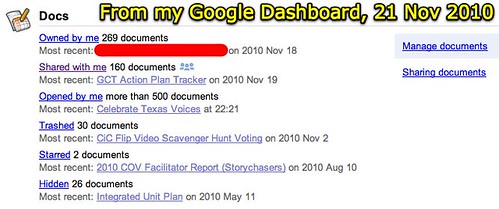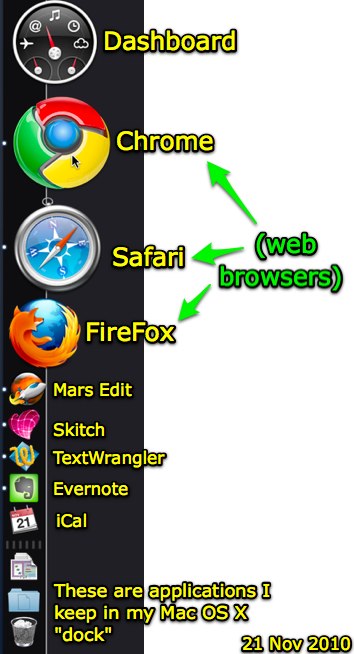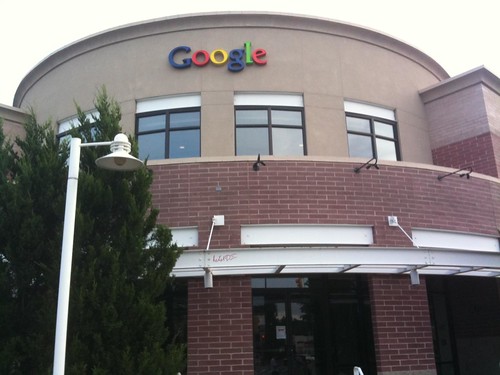Peter Bright’s November 16th article for Arstechnica, “Going all-in: Ars interviews Microsoft’s Steve Ballmer,” is well worth reading. Traditionally and historically, I think of Microsoft first when it comes to client-based computing. The Windows operating system and the Microsoft Office suite of products are the foundation which built and still sustains the Microsoft empire. Microsoft CEO Steve Ballmer claimed in this recent interview, however, that Microsoft not only understands the importance of cloud-based computing but is “all-in” efforts to embrace it with products. The Windows Azure Platform is one example. In the article, Ballmer is quoted as saying:
I don’t think that we’re ever going to live in the Sun fantasy world of network computers, where we only have dumb terminals and all the power is elsewhere, but I think there’s clearly going to be a greater mix of devices. Windows Phone 7 is already cloud-synced for the most part; it needs the Zune software for loading music, but even that is something that will diminish in the future as mobile networks improve. Future tablets will almost certainly have a similar dependence on the cloud for storage and backups. It just makes sense: using the cloud for mass storage protects your data, and that’s extremely valuable for these highly portable, easily losable (or stealable) gadgets. These are areas that will almost certainly expand, and these devices will equally occupy a greater part of our lives.
They won’t be able to do everything, and the conventional PC won’t disappear. But even it, too, can benefit from such things as online backups and simpler application delivery. One of the features suggested for Windows 8 is a kind of reset switch that would allow a PC to be restored to its factory configuration but without wiping out stored data or desirable applications. Being able to retrieve that data and those applications from the cloud would make this kind of capability a cinch. It would offer the same kind of convenience as Steam does for games and game settings, but for the entire PC.
And then we get into even more exotic applications; Microsoft’s Office 365 provides cloud-based access to various Office tools, but we could envisage this going further still—selling remote access to the Office desktop applications running on remote virtual machines, for example. It doesn’t make much sense to run every application virtually in this way, but for Excel to balance a checkbook once a month, or Word to write a school report once a week, it could be the right approach: better software than the Web applications but without those pesky piracy concerns.
I’m sure Microsoft HOPES “the conventional PC won’t disappear,” but that’s no guarantee it won’t. I think Ballmer’s idea that cloud-based apps could be used “once a week” for word processing or “once a month” for spreadsheet needs vastly understates the capabilities and current uses of solutions like Google Docs. (It also ignores F/OSS.) My own Google Dashboard reveals the HUNDREDS of word processing and spreadsheet files I currently utilize within Google Docs. Many of these I created, but hundreds were created by others, and I’m a collaborator on them.
In the article, Ballmer said something VERY interesting and relevant to the goal of balanced content filtering. He is quoted as saying:
At the end of the day, businesses, when a consu… when a user—let me not use the word “consumer”—when a user comes into work and asks for something over and over, IT’s going to have to give it to them. Now, do I expect the user to come in and say they really want their company to use SQL Server versus Oracle? No. But anything the consumer can use at home, they will develop a point of view on and ask for it at work. And eventually, IT will give it to them.
Inspired by this statement and idea, I wrote a post over on BalancedFiltering.org: “Persistently ask for websites to be unblocked.” If Steve Ballmer says it will work, who am I to question him?! 🙂
It will be interesting to see how Microsoft’s embrace of cloud-based computing affects the marketplace. In the interview Ballmer explains the key role which consumers / users at home play in changing the IT landscape at work and in organizations:
IT may hold them [employees using cloud-based apps] down, slow it down, and that’s all appropriate at work, but ultimately let me say that supply and demand at work has to balance, and supply and demand at work is gonna reflect supply and demand outside of work, and so I think a unique opportunity we have is to be a company that builds things that consumers love that enterprises will actually use. Because once a consumer loves it, there will be pressure on the enterprise to use it. I want the consumers to love our stuff more and for the enterprises to be able to use it more quickly.
What kinds of cloud-based applications do you love using at home, that you’re not allowed to use appropriately at school or work? Perhaps we need to be asking to use these apps more persistently in the workplace?
I found Peter’s comparison of Microsoft’s historic approach to web browsers and the approach of developers like Google and Mozilla interesting. He wrote:
A notable feature of all of these products—Chrome, Firefox, iPhone, perhaps even Mac OS X—is that they have frequent releases (at least when compared to their Redmond-originated alternatives) and they have aggressive end-of-life/upgrade policies. Chrome will upgrade itself automatically, with no support for older versions. Older versions of Firefox do get bugfixes, but only for a couple of years. A similar situation for Mac OS X; the current version is supported well, the previous version is supported adequately, but woe betide anyone sticking with the version before that. The situation that Microsoft faces—customers getting locked in to software that was released in 2001—simply can’t occur. The platforms move too fast to allow that kind of stagnation… I sometimes feel that the company [Microsoft] barely even recognizes that its browser market share is tanking, much less has any idea why it is that the likes of Firefox and Chrome are winning hearts at Internet Explorer’s expense. One wonders just how low it’ll have to go before Microsoft realizes that releasing a new browser every three years and supporting it for a decade at a time is not a winning strategy.
I ditched Internet Explorer (IE) years ago and have never looked back. I now use Google Chrome as my primary web browser, and occasionally use Safari and FireFox. I keep all three in my dock for easy access, but I have ZERO plans to ever go back to IE. Microsoft would have to radically change it’s approach to browsers to get me to switch.
Peter used the phrase “finger friendly” to describe iOS as well as Android devices which now have an enormous variety of software applications written specifically for their touchscreen environments. I have heard a VERY limited number of people rave about how much they love apps like Microsoft OneNote on a Tablet PC, but it’s rare for me to hear that opinion these days. Peter wrote:
Finger-driven, highly mobile tablets are probably Microsoft’s most difficult problem. If these things truly take off and start to seriously rival PCs in market penetration—which, in spite of the success of the iPad, still isn’t certain—they will threaten to obsolete the very thing that makes Windows valuable: the enormous body of Windows software. A Windows tablet is great at running Windows software. It is, after all, still running Windows. Where it falls down hard is in being finger friendly.
With Windows Phone 7, Microsoft is trying to reinvent itself in the mobile space. One of the biggest problems they face, however, was also highlighted by Peter in this article, and that is interoperability. He wrote:
Or, take Windows Phone 7. Much has been made of Windows Phone 7’s Xbox Live features, and I agree they’re kinda neat. But I can’t use a Windows Phone 7 device to play back media to an Xbox 360. I can with a Windows 7 PC—both support DLNA—but the phone doesn’t support it (unless I get an LG handset; LG has written custom DLNA software for its phones). I can’t use my phone as a remote control for the Xbox 360 or the Windows 7 PC. It’s still early, and I hope these things will come, but this kind of seamless interoperability is still an area that Microsoft is poor at.
I think that the company is improving in this area, and the “three screens” initiative (phone, TV, PC) shows that it is thinking about creating a more cohesive experience. But again, “three screens” is a concept that predates the departure of these senior staff.
The “three screens focus” was something I learned about early-on during my stint as the Director of Education Advocacy for AT&T in Oklahoma from 2006-2008. The “three screens” are your television, your mobile device, and your computer. I think Apple and Google are way ahead of Microsoft in providing platforms for the latter two screens, and during the 4th quarter of this year we’re seeing both companies move aggressively onto the first screen (the TV) with Google TV and Apple TV. No one is taking about “Microsoft TV,” and that’s probably very significant in terms of the company’s lack of overall consumer focus. Sure, XBox360 is popular, 3 people on our planet are still using Zunes, and Windows Phone 7 is being developed, but at its core Microsoft is an enterprise-facing corporation. It remains to be seen how that focus will continue to serve them in the years ahead if it’s maintained.
In January 2007 when Apple CEO Steve Jobs announced the name of “Apple Computer” was changing to “Apple,” to coincide with the iPhone release, that was a BIG deal. Apple has made a huge shift from being primarily a computer manufacturing company to now being a company focused on consumer entertainment, mobile communications, and computing. Will Microsoft make a similar radical shift and reinvent / redesign itself? I doubt it. I am interested to hear about their cloud-based ventures, however. For now, I’m sticking with Google Docs and my Apple screens: laptops as well as iOS devices!
Technorati Tags:
apple, browser, cloud, computing, future, google, microsoft, tablet, tv
If you enjoyed this post and found it useful, subscribe to Wes’ free newsletter. Check out Wes’ video tutorial library, “Playing with Media.” Information about more ways to learn with Dr. Wesley Fryer are available on wesfryer.com/after.
On this day..
- Our Daughter Plays Minecraft with International YouTubers – 2015
- Use an Older Wii Remote with Smoothboard Software – 2014
- Small Museums, Libraries and Archives: Advocating to Preserve Community Heritage – 2013
- Advocating for Balanced Content Filtering in Oklahoma City Public Schools – 2011
- Help Needed from Urban Educators: Are Evernote, GDocs & Edmodo Blocked for Your Students? – 2011
- Going Mobile with Digital Storytelling – 2010
- Doubting the power of Netbooks? Consider Chrome OS – 2009
- Pleased with Windows 7 default scanning functionality – 2009
- Website visitor tracking with Feedjit and ClustrMaps – 2008
- My iMovie to Final Cut learning journey continues – 2008




